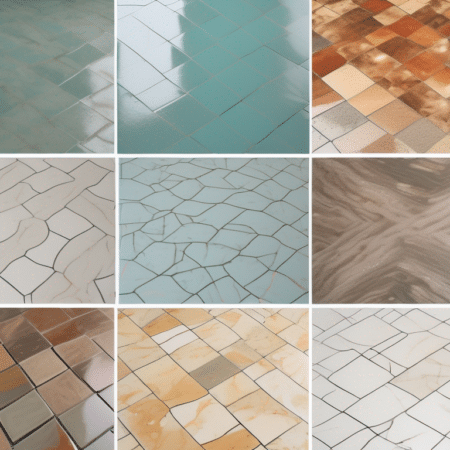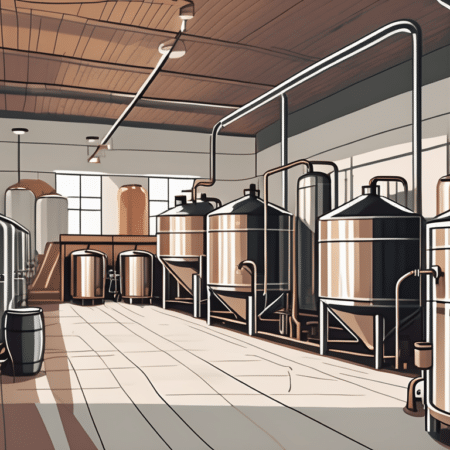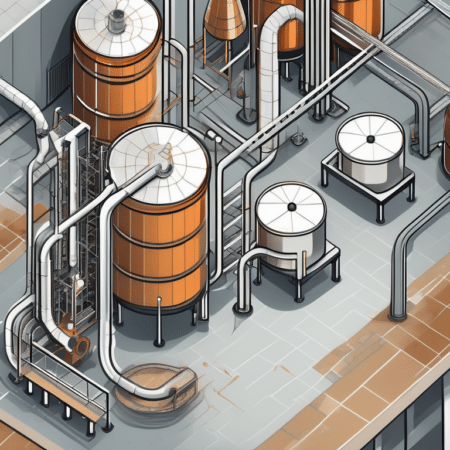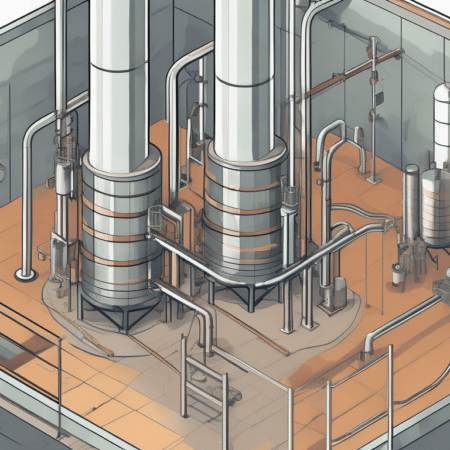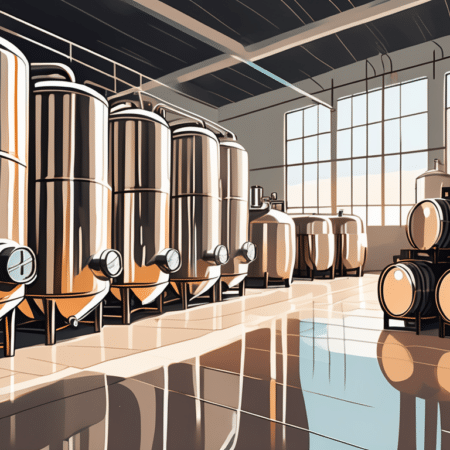Brewery floors face unique challenges due to the environment they are exposed to. They must withstand heavy foot traffic, forklift traffic, spills, chemical exposure, and temperature fluctuations. To ensure the longevity and safety of the brewery floor, it is essential to choose and apply the right epoxy coating. In this guide, we will delve into the different aspects of brewery floor epoxy, including understanding its importance, the different types of coatings available, factors to consider when choosing, and a step-by-step guide to applying the epoxy coating. We will also provide tips for maintaining your epoxy floor to keep it in pristine condition.
Understanding Brewery Floor Epoxy
Brewery floor epoxy is a protective coating specifically designed to meet the demands of brewery environments. It provides a durable, chemical-resistant, and slip-resistant surface, making it an ideal choice for brewery floors. Without a proper coating, brewery floors can become damaged and unsafe, potentially leading to costly repairs and accidents.
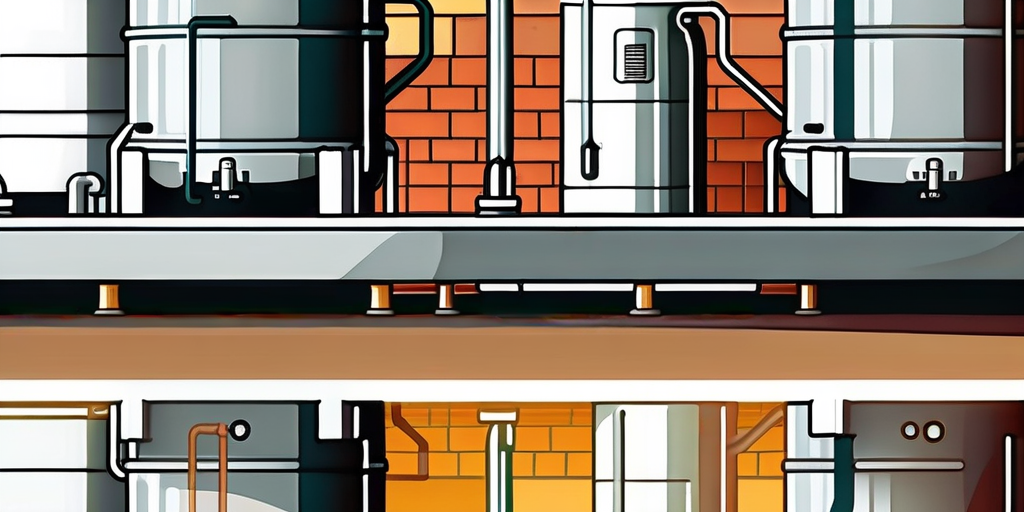
The Importance of Brewery Floor Coating
The brewery floor coating plays a crucial role in maintaining the longevity and functionality of your brewery. It protects the concrete floor from wear and tear caused by heavy equipment and foot traffic. Additionally, it creates a seamless and easy-to-clean surface, reducing the risk of contamination by preventing liquids from penetrating into the concrete.
Imagine a bustling brewery, with workers scurrying around, equipment being moved, and beer being brewed. Without a protective coating, the concrete floor would quickly deteriorate under the weight and constant movement. Cracks would form, creating tripping hazards and allowing liquids to seep into the concrete, potentially leading to bacterial growth and contamination.
However, with the application of brewery floor epoxy, the concrete floor becomes a resilient and safe surface. The epoxy coating acts as a shield, absorbing the impact of heavy equipment and foot traffic, preventing any damage to the underlying concrete. It also creates a seamless surface, eliminating any cracks or crevices where dirt, bacteria, or spilled liquids could accumulate.
Different Types of Epoxy Coatings
There are various types of epoxy coatings available, each with its own unique properties and advantages. Understanding these options will help you make an informed decision when choosing the best coating for your brewery floor.
One common type of epoxy coating used in brewery floors is 100% solid epoxy. As the name suggests, it is composed entirely of epoxy resin and does not contain any solvents. This type of epoxy provides excellent durability, chemical resistance, and abrasion resistance.
Imagine a brewery with a bustling taproom, where beer enthusiasts gather to enjoy their favorite brews. The constant foot traffic and occasional spills can take a toll on the floor. However, with the application of 100% solid epoxy coating, the floor remains pristine and resistant to the chemicals found in beer, such as hops and malt. This type of epoxy ensures that the brewery floor can withstand the demands of a busy taproom, maintaining its appearance and functionality for years to come.
Another option is epoxy mortar flooring, which involves mixing epoxy resin with graded aggregates. This creates a thicker and more impact-resistant floor, making it suitable for areas prone to heavy impacts and high traffic.
Imagine a brewery’s production area, where heavy brewing equipment is constantly being moved and positioned. Without a durable and impact-resistant floor, the constant weight and movement of the equipment would quickly damage the concrete. However, with the application of epoxy mortar flooring, the floor becomes resilient to these impacts. The graded aggregates mixed with epoxy resin create a strong and sturdy surface that can withstand the weight and movement of heavy machinery, ensuring the longevity of the brewery floor.
Lastly, you have epoxy novolac coatings, which are highly chemical-resistant and ideal for breweries that handle corrosive substances. These coatings offer exceptional resistance against acids, alkalis, and solvents, ensuring the longevity of your brewery floor.
Imagine a brewery that specializes in brewing sour beers, which require the use of acidic ingredients. Without the appropriate protection, the acidic nature of the brewing process could quickly corrode the concrete floor, leading to costly repairs and potential safety hazards. However, with the application of epoxy novolac coatings, the floor becomes impervious to these corrosive substances. The chemical-resistant properties of epoxy novolac coatings ensure that the brewery floor remains intact and safe, even in the face of highly corrosive materials.
Factors to Consider When Choosing Brewery Floor Epoxy
Choosing the right brewery floor epoxy involves considering several important factors. By carefully evaluating these factors, you can select a coating that meets your specific needs and requirements.
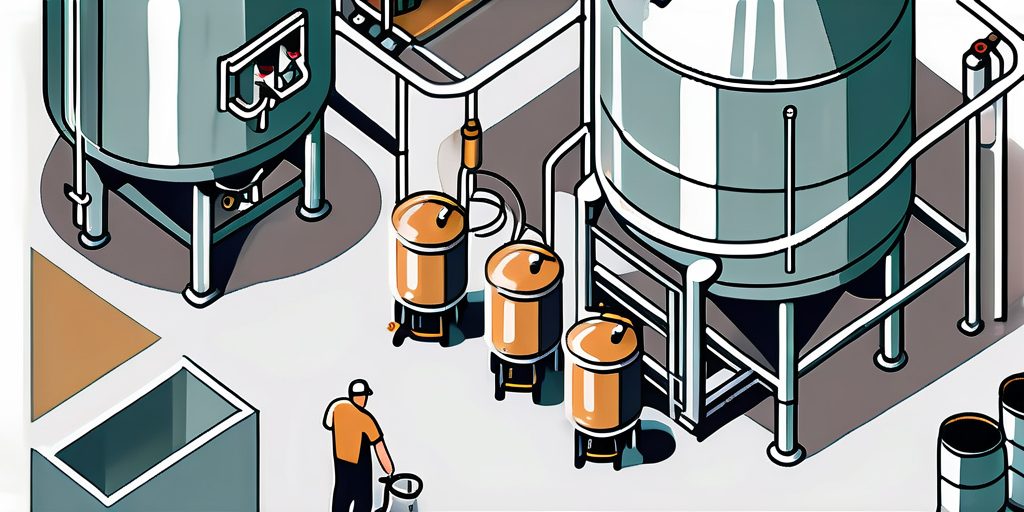
When it comes to brewery floor epoxy, durability and lifespan are crucial considerations. The demanding nature of brewery environments requires a coating that can withstand heavy foot traffic, forklift traffic, and other potential impacts. Opting for a high-quality epoxy coating will ensure a longer lifespan for your brewery floor, saving you time and money on repairs and replacements in the long run.
Resistance to chemicals and stains is another vital factor to consider. Breweries handle various chemicals, including cleaning agents, sanitizers, and brewing ingredients. It is important to select an epoxy coating that is resistant to these chemicals to prevent damage and staining. This will help to maintain the appearance and performance of your brewery floor over time, ensuring a clean and professional environment for your brewing operations.
In addition to durability and resistance to chemicals, ease of maintenance is also a key consideration. Maintaining a clean and hygienic brewery floor is essential for product quality and safety. Look for an epoxy coating that is easy to clean and maintain. A seamless and smooth epoxy surface prevents the buildup of dirt, bacteria, and other contaminants, making cleaning a breeze. This not only saves you time and effort but also ensures a sanitary environment for your brewing process.
Furthermore, it is worth considering the aesthetic appeal of the epoxy coating. While functionality and performance are paramount, a visually appealing brewery floor can enhance the overall ambiance of your facility. Some epoxy coatings offer a range of colors and finishes, allowing you to customize the look of your brewery floor to align with your brand image or design preferences.
Lastly, it is essential to choose a reputable supplier or manufacturer when selecting brewery floor epoxy. Working with a trusted and experienced provider ensures that you receive a high-quality product and reliable customer support. Take the time to research different suppliers, read customer reviews, and ask for recommendations from other brewery owners or industry professionals.
Step-by-Step Guide to Applying Brewery Floor Epoxy
Now let’s dive into the process of applying brewery floor epoxy. Keep in mind that proper preparation and application are key to achieving a successful and long-lasting coating.
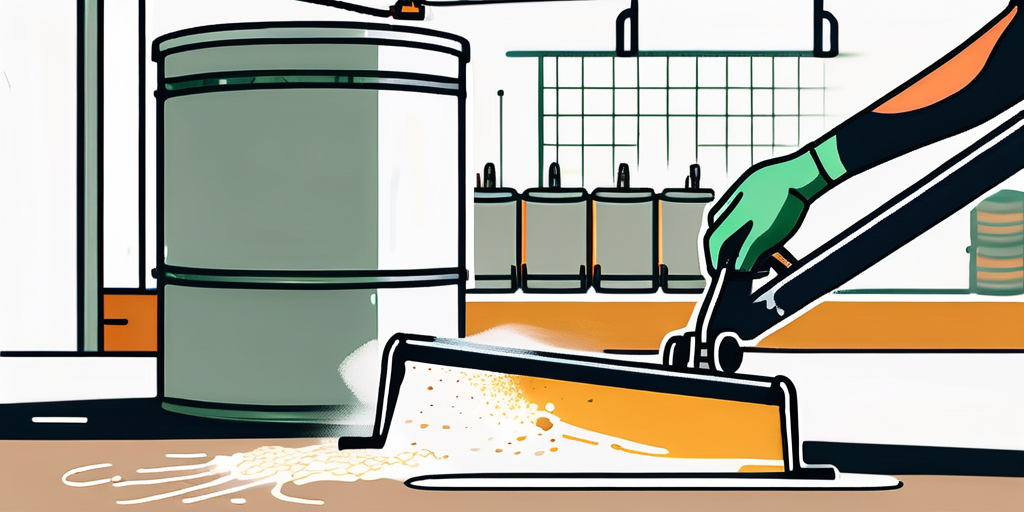
Preparing the Brewery Floor
The first step is to prepare the brewery floor for epoxy application. This involves thorough cleaning to remove any dirt, oil, grease, and contaminants. It is essential to repair any cracks, spalling, or other damages before proceeding.
Once the floor is clean, it may need to be etched or mechanically abraded to improve adhesion. This step ensures that the epoxy coating bonds properly with the concrete surface.
Mixing the Epoxy Coating
After preparing the floor, it’s time to mix the epoxy coating. Follow the manufacturer’s instructions regarding the mixing ratios and techniques. Use a clean container and mix the components thoroughly to achieve a homogenous mixture.
Be mindful of the pot life, which is the time you have to work with the mixed epoxy before it starts to cure. Avoid mixing more epoxy than you can apply within the pot life to prevent wastage.
Applying the Epoxy Coating
With the epoxy mixture prepared, it’s time to apply the coating. Start by cutting in the edges using a brush or roller. Then, use a squeegee or roller to apply the epoxy to the rest of the floor, working in manageable sections.
Ensure even and smooth distribution of the epoxy coating. Pay attention to any pinholes or missed spots, as these can compromise the integrity of the coating. If needed, apply a second coat once the first coat has cured according to the manufacturer’s instructions.
Tips for Maintaining Your Epoxy Floor
Maintaining your epoxy floor is crucial to preserve its appearance and functionality. Following these tips will help you keep your brewery floor in optimal condition for years to come.
Regular Cleaning Practices
Establish a regular cleaning routine to prevent the buildup of dirt, spills, and contaminants. Sweep or dry mop the floor daily to remove any loose debris. Use a mild detergent or specialized epoxy cleaner along with a scrub brush or mop to remove tougher stains.
Periodically, perform a more thorough deep cleaning to remove any stubborn residue or bacteria. Follow the manufacturer’s guidelines for cleaning products and techniques to avoid damaging the epoxy coating.
Dealing with Scratches and Chips
Despite its durability, epoxy coatings can still develop scratches or chips over time. It is important to address these issues promptly to prevent further damage. For minor scratches, you can use a fine-grit sandpaper to smooth out the affected area. For deeper scratches or chips, consult a professional epoxy floor installer for repair.
When to Consider Re-coating
Epoxy coatings have a finite lifespan. Factors such as wear and tear, chemical exposure, and heavy traffic can gradually deteriorate the coating. Therefore, it is important to monitor the condition of your brewery floor and consider re-coating when necessary.
If you notice signs of wear, decreased performance, or compromised appearance, it may be time to apply a fresh coat of epoxy. Consult with an epoxy flooring professional to determine the best course of action based on the specific needs of your brewery.
By understanding brewery floor epoxy, considering important factors, and following proper application and maintenance practices, you can choose and apply the best coating for your brewery floor. This will ensure a safe, functional, and visually appealing environment for your brewery operations for years to come.







